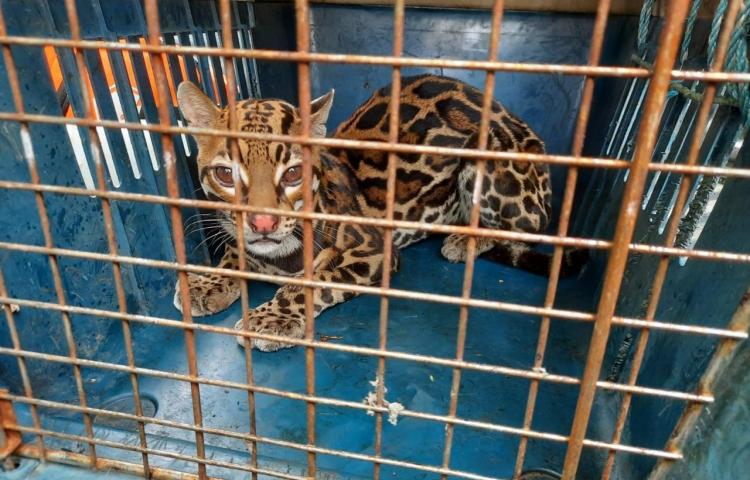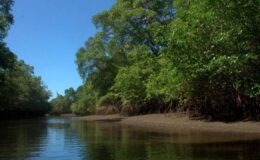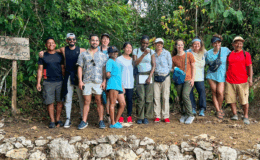Indigenous Ocelot captured unharmed.
- By : James Bryson
- Category : Conservation

http://elsiglo.com.pa/panama/felino-rondaba-clayton-puesto-salvo/24193199
Specialized wildlife agents set a trap for him and thus safeguard the integrity of the feline and the residents
Residents of a neighborhood in the Clayton area notified the authorities of the sighting of a feline, which was located and rescued by units of the National Directorate of the Environmental, Rural and Tourist Police.
It is an ocelot or ocelot (Leopardus pardalis), which was captured for greater security, after residents of the sector warned that it was prowling near their homes. There was also a report of an alleged animal attack on a citizen.
This motivated specialized wildlife police officers, with the appropriate equipment, to set a trap for him and thus safeguard the integrity of the feline and the residents.
It was reported that Lieutenant Reynaldo Castillo and 1st Corporal Roberto Acevedo were the ones who carried out this mission, putting into practice the skills learned in this type of rescue.
The Police reminded citizens that if they find themselves in this situation, not to try to approach the animal, nor feed it, much less capture it, since this puts its life at risk, causing stress or even compromising the physical safety of the person who approaches the animal. feline.
Now the authorities are investigating whether this animal was domesticated or came from the wooded areas near Clayton.
“This specimen, representative of the tropical forests of America, was placed in the custody of the personnel of the Department of Biodiversity of the Ministry of the Environment, where it will be evaluated by expert veterinarians and later released into its natural habitat,” the Police reported.
MiAmbiente investigates
For its part, the Ministry of the Environment (MiAmbiente), reported that it is evaluating the state of health of the feline, after the report that it had attacked a citizen, in the Clayton sector.
After the report of the incident on social networks, in joint action, the Environmental, Rural and Tourist Police rescued and handed over the ocelot to MiAmbiente personnel, who proceeded to verify its health status and evaluate its behavior.
Erick Núñez, head of the entity’s Biodiversity department, explained that the attack on humans is not a behavior typical of wild animals, therefore, he does not rule out the possibility that the feline was being domesticated and has escaped, or that was being fed by area residents.
“Usually the cats, when they see the man, choose to leave,” he stressed.
Contact for assistance
If you observe the presence of wild animals in your area of residence, it is recommended to call 314-9439 or 314-9451 of the Environmental Police.



No Comments